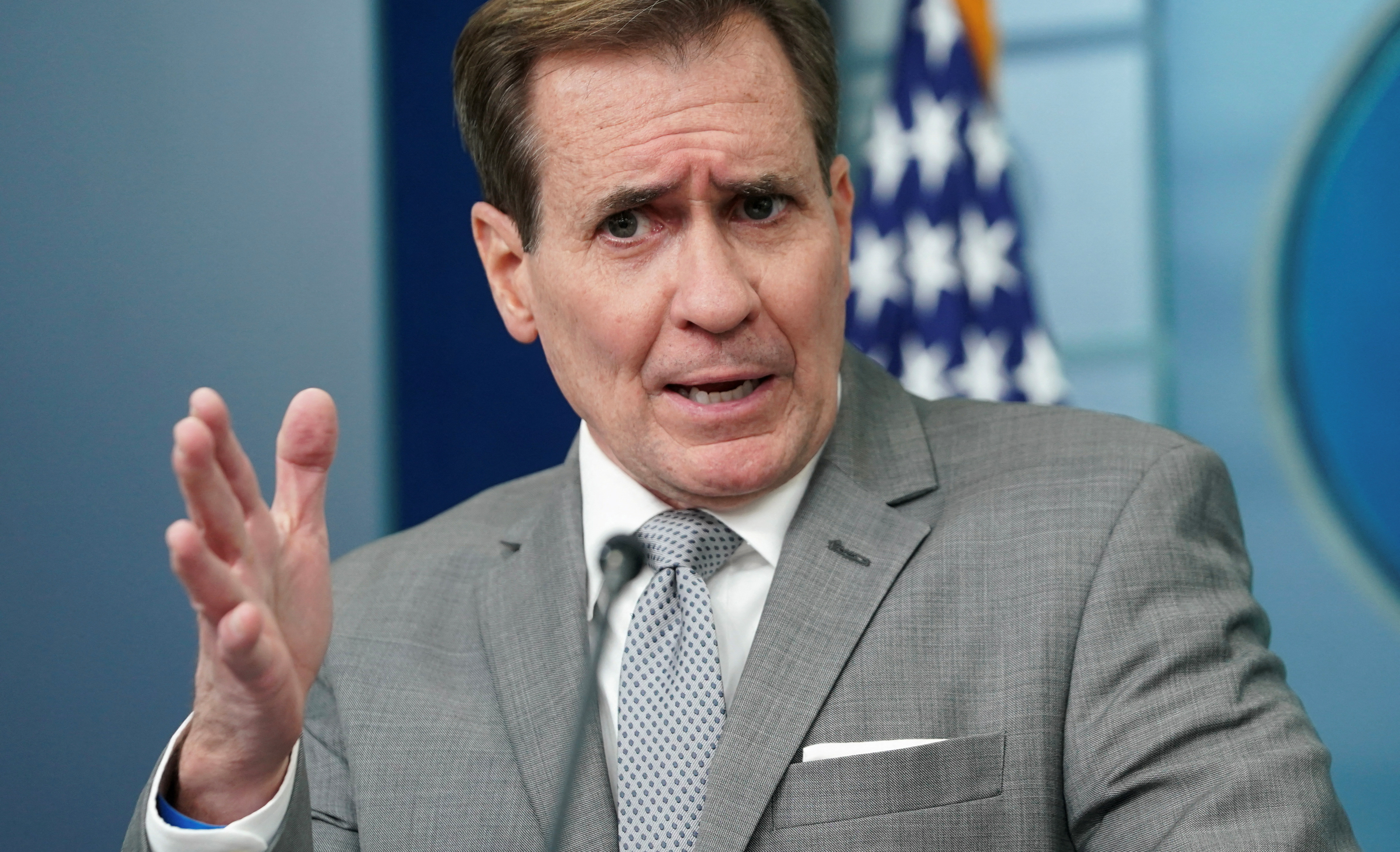WASHINGTON/SEOUL Jan 5 (Reuters) – Russia recently used short-range ballistic missiles (SRBMs) obtained from North Korea to launch multiple strikes against Ukraine, the White House said on Thursday.
National Security spokesman John Kirby told reporters that the United States would raise the development with the United Nations Security Council.
Kirby said North Korea's arms transfer to Russia was “significant and related to escalation,” and said the U.S. would impose additional sanctions against those facilitating the arms deals.
Both Moscow and Pyongyang have denied conducting any arms deals, but pledged last year to deepen military ties.
Britain and South Korea have condemned the use of the missiles, and in November North Korea may have supplied Russia with SRBMs as part of a larger arms deal that would include anti-tank and anti-aircraft missiles, as well as artillery. And mortar shells, and guns.
“Our information indicates that the Democratic People's Republic of Korea has recently delivered ballistic missile launchers and multiple ballistic missiles to Russia,” Kirby said, using North Korea's official name.
On December 30, he said, “Russian forces fired at least one of these North Korean missiles into Ukraine,” and it appears to have landed in open air.
Later on Tuesday Russia launched “several” North Korean missiles as part of a wider wave of heavy airstrikes, Kirby said. Washington was still assessing the impact of those missiles.
Russia has recently launched some of its most serious attacks on Ukraine since the war began nearly two years ago. Kyiv said on Tuesday that Russia had launched more than 300 attack drones and various types of missiles at cities across Ukraine since Friday.

White House National Security Adviser John Kirby responds to a question during a press conference at the White House in Washington, U.S., on January 3, 2024. REUTERS/Kevin Lamarque Get license rights
Helps Russia
“Like artillery and ammunition, all of this helps prolong Russia's war effort,” said Jenny Towne, director of the Stimson Center's 38 North Project, which studies North Korea.
While the White House did not say specifically what type of missiles Pyongyang sent to Russia, Kirby said they would have a range of about 900 km (550 miles) and released a map that appeared to show the KN-23 and KN-25 missiles.
Such missiles are new, solid-propellant SRBMs that North Korea began testing in 2019, said Ankit Panda of the US-based Carnegie Endowment for International Peace.
“This is the first known combat use of these North Korean missiles,” he said.
Joost Ollimans, a Dutch researcher and North Korea military expert, said images from Ukrainian social media accounts clearly show fragments of the ring containing the control vanes characteristic of North Korea's Hwasong-11 family of missiles, including the KN-23 and KN-25.
Kirby said the U.S. expects Russia and North Korea to learn from these missiles, and that Russia will use additional North Korean missiles to target Ukraine.
Iran has not supplied Russia with short-range ballistic missiles, but Washington believes Russia wants to buy missile systems from Iran.
Moscow relies heavily on Iran for drones and other weapons against Ukraine.
Reporting by Jeff Mason, Steve Holland and Doina Chiaku in Washington and Josh Smith in Seoul. Additional reporting by Choo-Hyang Choi in Seoul and David Brunstrom in Washington; Editing by Thomas Janowski, Leslie Adler and Lincoln Feist.
Our Standards: Thomson Reuters Trust Principles.

/cloudfront-us-east-2.images.arcpublishing.com/reuters/AWPUICLORJJGLLS3TJJ7E7J62Q.jpg)
